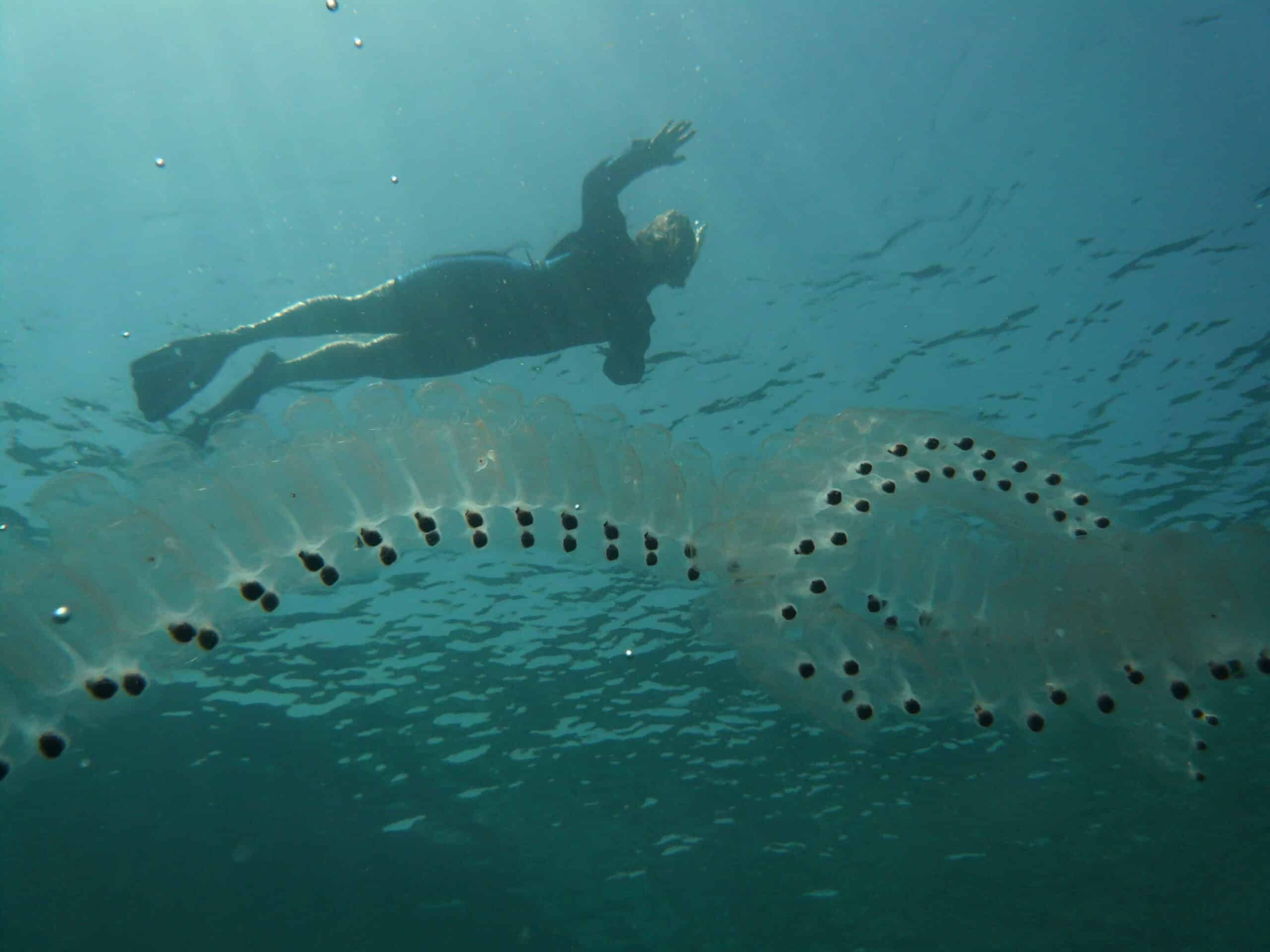Salps have very important role in the capture of carbon in the sea
A marine organism resembling a jellyfish and rarely found in coastal areas has been appearing near the Algarve coast. However, unlike some species of jellyfish, it is harmless, a researcher told Lusa news agency.
Despite usually being found out in the ocean, these salps – a tunicate, meaning a marine invertebrate animal – may be appearing closer to the coast due to currents, as they feed on phytoplankton and their movement is influenced by maritime activity, Joana Cruz, a researcher at the Centre for Marine Sciences (CCMAR) of the University of Algarve (UAlg), has explained to Lusa news agency.
Salps range in size from one to 30 centimetres and are “completely harmless” as they do not have stinging cells, the researcher said, adding that these “gelatinous, barrel-shaped and translucent organisms” have a very important role in the capture of carbon in the sea, contributing to environmental sustainability.
While Joana Cruz usually conducts a lot of research in coastal areas, such as in the lower estuary of the Guadiana River or even in the Ria Formosa, due to her specialisation in phytoplankton, “salps never appear”. Their appearance along the Algarve coast now may be because they “cannot fight against the current”.
“In terms of reproduction, they can have a solitary phase and another phase, in which they form colonies. They have two types of reproduction; when they are solitary, they reproduce asexually, and it is with the salps resulting from this asexual reproduction that such colonies are formed,” she said.
Joana Cruz highlighted that a colony is usually composed of “many salps attached to each other,” and the group can reach “hundreds of metres.”
They feed by contracting their bodies which allows them to “capture phytoplankton,” and they have the ability to “transfer all the carbon that exists on the surface to deeper areas” of the ocean “through, for example, their faeces, which can be very large and accumulate a lot of carbon, and also from the animals themselves, from the salps that will die, which end up sinking to deeper areas.” Added the researcher, “this is good because carbon is captured and, therefore, they are quite important in these processes”.
Source: LUSA




















